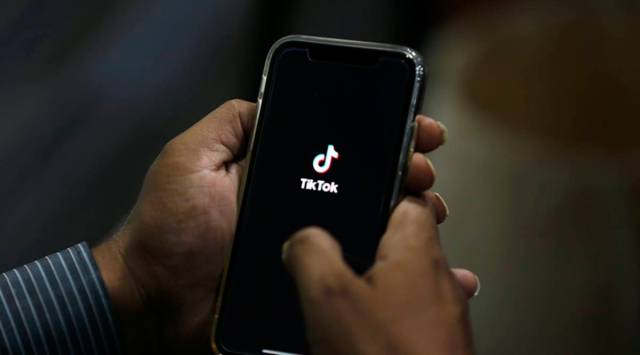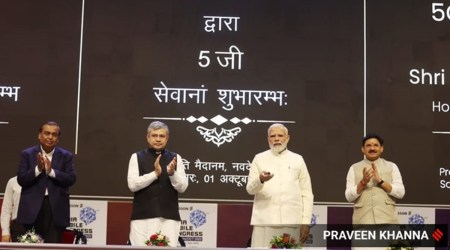- India
- International
More Chinese apps banned in India: Lack of transparency is worrying, say experts
MeITY's latest round of ban on Chinese apps in the country, included AliExpress, which is an e-commerce platform, Lalamove, a delivery and logistics app, and Snack Video, which was gaining popularity in the market.
 The Trump administration contends TikTok poses national security concerns as the personal data of U.S. users could be obtained by China’s government.
The Trump administration contends TikTok poses national security concerns as the personal data of U.S. users could be obtained by China’s government.On Tuesday, the Ministry of Electronics and Information Technology (MeITY) announced another round of ban on Chinese apps in the country, with a total of 43 apps figuring in the latest list. The most prominent names in the list were apps like AliExpress, which is an e-commerce platform, Lalamove, a delivery and logistics app, and Snack Video, which had started to replace TikTok in the short video format in tier-2, tier-3 cities in India.
In June 2020, the government had banned 59 apps, citing threat to ‘sovereignty and integrity of India’, which included TikTok in the list. In September, 118 apps were banned, and the most prominent name in the list at that time was PUBG Mobile. In July, the government had also banned clone apps of the first 59 that were on the list. Around 47 apps were included in that list.
The MeITY orders say that the apps were banned for engaging in activities “prejudicial to sovereignty and integrity of India, defence of India, security of state and public order,” under Section 69A of the Information and Technology (IT) Act.
But internet policy experts say this is a worrying trend. The biggest being the lack of transparency with the bans. “The kind of power being used with these bans, there’s no degree of transparency. Certainly there are degrees of insecurities with a bulk of these applications. However, the question to ask is if these arise only with these banned applications or do they exist with other applications as well,” Apar Gupta, lawyer and Executive Director for Internet Freedom Foundation told indianexpress.com over phone.
Also read: The full list of Chinese apps banned in India: TikTok to UC Browser to PUBG Mobile and more

He also pointed out that the “objective of public policy should not be to discriminate between winners and losers.” Rather the need is to “set standards and to enforce these penalties with a degree of uniformity, which is not happening right now,” he added.
The bans come after India’s recent clashes with Chinese troops at the Ladakh border. According to New York-based lawyer Mishi Choudhary, who specialises in technology law, one cannot ignore that “geopolitics and cyber policy, and also the information technology market are quite intertwined with each other.”
She acknowledges that China does not play by the rules. “We’ve seen Chinese practices to be notorious in several matters. So this is not to say that the government does not have any reason to do such a thing. But why are we being told that nationalist apps are better than foreign apps,” she asked.
She too agrees that the demand for transparency when it comes to blocking of apps cannot be ignored. “Subject all entities, Indian, Chinese, or American to the same kind of standards and laws,” she said.
Read more: PUBG Mobile India comeback: Everything we know so far
Policy uncertainty, no data privacy law
The bans also create an uncertain regulatory environment, according to the experts.
“I would say that it doesn’t reflect a well-thought through policy decision. Something which is meant to be a short term step seems to be now the preferred mode for the last few months. Everything which comes out of MeiTY keeps citing national security,” Choudhary said.
She also pointed out that India’s Data Protection Bill is yet to be passed, which adds to the problem. India’s Data Protection Bill 2019 is currently being examined by a Joint Parliamentary Committee in consultation with experts and stakeholders.
“India does not have comprehensive privacy-based legislation on data protection, which they can rely on to deal with apps which are doing data theft or not complying with the laws. So they are only left with the IT Act and that’s what they decide to do,” she said.
There’s also the question of applying the same law to all players. Choudhary said that all players should be subject to the same law.
“There are many reports, whether it is all these big wallets, or FinTech companies, or any of these new things about data theft, how you can buy lists and phone numbers and Aadhaar numbers and other details from various people. There is just no enforcement of law or even discussion about law. We are dithering now for three years about data protection legislation,” she pointed out.
According to Gupta, the issue of protecting user data should apply to all apps and not just to the Chinese ones. “So while cyber-security risks, risks with personal data aggregations are all there with these apps, the truth is there is no data protection law. The issue also arises out of millions of other apps which are already there in the market. So it does not make any difference if the app is made in China or Timbuktu,” he said.
He added, “For data protection, we need to go through a legislative means, we need penalties which are justifiable. It is better to have prescriptive practices, instead of these bans.”
The bans also raise questions on where India’s tech policy is headed. “We still do not have a comprehensive thinking on tech policy. I think the uncertainty which we are offering does not make India an attractive destination for companies, despite the fact that as a market, it is a very, very attractive destination,” Choudhary cautions.
In her view, regulations and rules are coming from the executive and businesses are constantly in this guessing game. “Everybody would like some predictability,” she added.
More Tech
Apr 26: Latest News
- 01
- 02
- 03
- 04
- 05









































